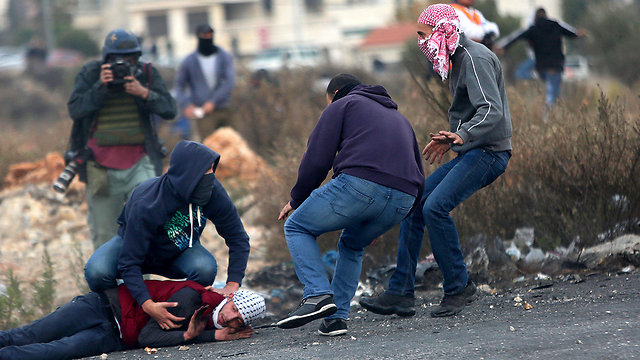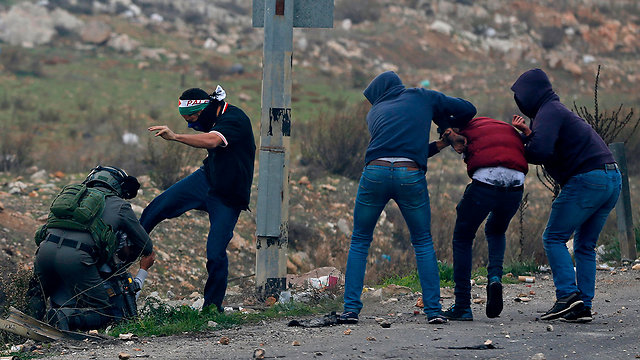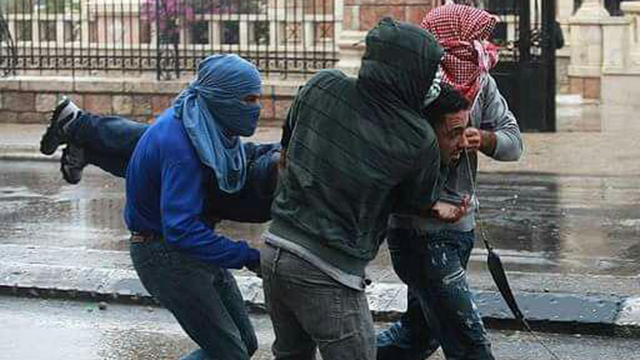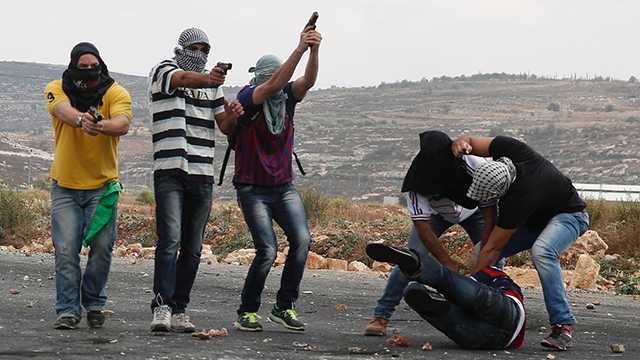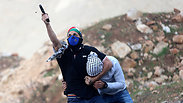
Details of the incident, which took place seven years ago, were revealed in an affidavit submitted to the Defense Ministry by an ordnance officer who was entrusted with the preparation and maintenance of a special undercover vehicle, which the IDF only had one of at the time.
The officer, who was diagnosed with diabetes, sued for disability benefits from the Defense Ministry, claiming he got sick because of the immense pressure he was under at the time.
The undercover vehicle went into Area A of the West Bank to capture a wanted terrorist who Military Intelligence flagged as planning to carry out a terror attack in the immediate future.
"The vehicle was disguised as a Palestinian vehicle, and included special abilities," the former officer wrote in his affidavit.
He said the vehicle passed all tests to indicate it was ready, and so the officer gave it the go-ahead to go on a "surgical mission: Go in, grab (the terrorist) and leave without the village becoming aware or waking up from the late night activity."
"The activity was covert, and if it had been discovered, it might have endangered state security, our soldiers and citizens. Only the GOC (Central) Command, the sector commander, the unit commander and the force carrying out the mission were aware of the operation, which was done in conjunction with the Shin Bet," the officer explained.
In the middle of the night, while the force was making its way to the wanted terrorist's home under the cover of darkness, the vehicle's brakes stopped working.
"This means the force was in danger," the former officer noted. "I made preparations to enter the village to extract the vehicle, but I was also aware of the fact I didn't have the ability to do so, because this wasn't a normal military vehicle in regular use in the IDF. The preparation for the extraction of the undercover vehicle was complex and unclear. When I was preparing to head out, I was stressed out and anxious that the fighters might be discovered because of the vehicle's malfunction."
"I tried to call a friend who was in the vehicle, but he had reception problems," the officer went on to write. "All I knew was that there was a problem with the brakes, and that they were stuck in hostile territory. I tried to get a rescue team organized. The sun was rising, and our soldiers were in a life-threating situation. The vehicle was stuck inside the village for 3-4 hours, and I was tense and anxious, and I knew that even if I went into the village, I wouldn't be able to extract the vehicle. I looked at the screen showing the force, and prayed to see them moving and leaving the village in one piece."
"The other option we had was to tow the vehicle with a power shovel, which would've made a lot of noise, woken up the village and exposed the fighters," he explained.
In his affidavit, the officer said he felt helpless at that moment. "I was in the midst of a whirlwind. The responsibility was mine. I was scared to death of what might happen if I entered the village and couldn't extract the vehicle. I had thoughts running through my head about the damages that might emerge if the operation was blown and the danger the troops could face. This entire thing was on my shoulders. I felt terrible, a heavy guilt."
Eventually, a professional driver who was sent to the scene was able to extract the vehicle from the village.
The next day, the ordnance officer was reprimanded by his commanders and an investigation was launched into the incident.
But this wasn't the end of it. The force was making preparations to carry out the same mission the next night, and the ordnance officer was once again tasked with preparing the vehicle that would take the troops into hostile territory. He spent the day preparing the undercover vehicle after having not slept the night before.
Shortly before heading out, the troops discovered the vehicle's headlights were not working. "This is a unique vehicle, the likes of which doesn't exist in the army, and this means there are no spare parts at hand in the army. Once again something unexpected happened that could render the operation a failure, because of me," the officer wrote.
"I felt like I couldn't take it, and at night I started looking for an open Home Center (hardware) store in Jerusalem in search of suitable lights. I also removed lights from other vehicles, but they didn't fit. My commanders were very angry at me, shouted at me, (asking me) why I wasn't following instructions, and why I was messing up again," the officer continued.
"In the field, soldiers were waiting after receiving confirmation from the Shin Bet about the terrorist's location—but only if they could leave immediately," he explained.
"The GOC (Central) Command was also aware of the screw-up that happened apparently because of me. This is an expensive operation, for which many troops had to be prepared—and all of this was on top of the fact that the terrorist was meanwhile walking around free."
Eventually, after speaking to other soldiers and officers at base, the ordnance officer learned one of the career soldiers in the unit had an identical private vehicle. The career soldier was called in from home; and the officer removed the lights from the vehicle and installed it in the undercover unit's vehicle. The force headed out two and a half hours late, but was still able to capture the terrorist.
"I was in a very shameful situation," the officer noted. "I was the commander, and I was responsible for the vehicles, but I didn't know how to extract the vehicle, and I had no experience fixing them. During those two days, I hardly ate, didn't sleep a wink and felt a heavy burden. I was afraid of dismissal and of reactions from my surrounding. Everything I built over five years in the army and three positions I excelled in came crumbling down over 48 hours. I was ashamed and felt that others were disappointed in me."
Maj. A., who served in a different combat support position in the same unit, gave his own statement in the suit, saying: "We're sometimes in a state of complete uncertainty and are required to provide solutions fast and in real time. Sometimes the unit switches from complete calm to a state in which all of its members are working at 100 percent."
"The night the brakes broke, the officer found himself in a situation he feared his entire career, in a very stressful situation," Maj. A. continued. "This was an extreme incident that doesn't happen very often. When it happens, there's the dilemma of whether to continue with the mission or extract the force from the hostile village at minimum friction. The situation the officer dealt with was unnatural and at high levels of stress. When he has no ability to deal with the problem, it was the straw that broke the camel's back. It offsets one's balance and causes deep mental issues."
The Defense Ministry initially rejected the office's suit, but a Rishon LeZion Magistrate's Court accepted his appeal, ruling his diabetes was caused as the result of the stress he experienced in those 48 hours. He was given a 40 percent disability recognition.
While this may be one unusual case, commanders of other undercover units revealed that they are constantly required to deal with unexpected delays or issues of this nature, which happen while they're in the middle of a mission in hostile territory.















